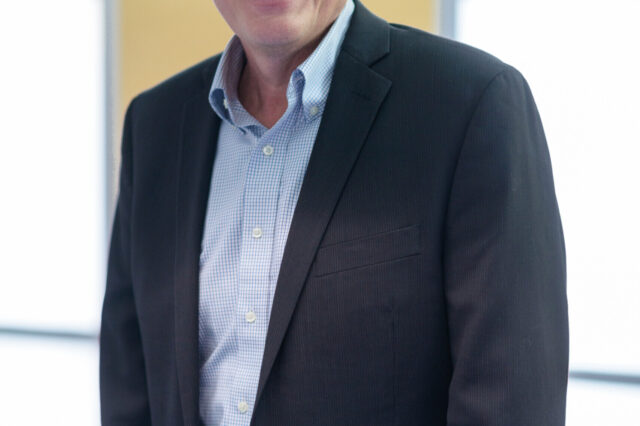UF Diabetes Institute director receives international acclaim for groundbreaking research

The director of the University of Florida Diabetes Institute has been awarded the 2019 Jacobæus Prize, one of the top international honors in the field of endocrinology and metabolism, for his contributions to groundbreaking Type 1 diabetes research.
Mark Atkinson, Ph.D., a professor in the UF College of Medicine’s departments of pathology and pediatrics, received the award Friday in Helsinki, Finland from the Novo Nordisk Foundation, a Danish group supporting medical research and treatment.
The prize is accompanied by an award of about $183,000 for “research or development work” at Atkinson’s discretion and a personal award of about $36,000.
“Mark Atkinson is internationally recognized for his research in which he has questioned the dogmas of diabetes research,” the foundation said in announcing the prize.
Novo Nordisk highlighted Atkinson’s founding 13 years ago of nPOD, the Network for Pancreatic Organ Donors with Diabetes. JDRF, formerly the Juvenile Diabetes Research Foundation, has called nPOD the world’s largest biobank of pancreatic tissue for diabetes research. Atkinson is nPOD’s executive director.
The tissue bank, housed at UF Health, has been transformational in the study of Type 1 diabetes, and its pancreatic tissue has been used in 248 studies by researchers in 21 countries.
“Mark Atkinson is an eminent scientist and one of the most cited authors in the field of Type 1 diabetes,” said Mikael Knip, a professor at the University of Helsinki who is the lead organizer of the Jacobæus Symposium 2019. “He is an extremely well-deserved recipient of the Jacobæus Prize because of his open-minded and seminal research on Type 1 diabetes.”
Atkinson said nPOD is now the world’s largest research program in Type 1 diabetes.
“If you look at the people who have received the Jacobæus Prize in the past, it’s like a Hall of Fame of those who have really made seminal insights into diabetes and other metabolic disorders,” said Atkinson. “Like many who receive this sort of recognition, I feel undeserving. I am certainly very honored. But I am just the beneficiary of what truly is a team effort because there have been so many other investigators who have contributed to nPOD.”
The pancreas of a person with Type 1 diabetes does not produce adequate insulin, a hormone that helps regulate how the body uses and stores sugar and other nutrients for energy. It’s an autoimmune disease, although nPOD research has helped demonstrate that stressed insulin-producing beta cells contribute to the disease’s development.
Indeed, nPOD has shown that longstanding dogma that all beta cells were lost shortly after the onset of Type 1 diabetes is false. In some cases, only half of the cells are lost. That knowledge may help scientists therapeutically exploit what beta cell function remains, avoid further destruction of these cells and learn how to generate new beta cells.
Atkinson said nPOD research also has helped scientists understand that Type 1 diabetes is more than just an autoimmune disorder and that these beta cells, as well as the pancreas itself, can contribute to the formation of the disease.
Atkinson founded nPOD after becoming frustrated that hundreds of studies in animal models had been able to prevent or cure Type 1 diabetes, yet translating that success to humans remained out of reach. He said he thought that by focusing on the human pancreas, scientists could better understand differences in how the disease progressed in animal models and humans.
“I was tired of seeing so many therapies work in mice and not translate to humans,” he said.
Atkinson has conducted research at UF for 35 years, the last 30 focused on Type 1 diabetes. He is the author of more than 500 publications and is the recipient of numerous scientific and humanitarian accolades.
“There’s no place I’d rather be studying Type 1 diabetes than the University of Florida,” he said.
About the author
